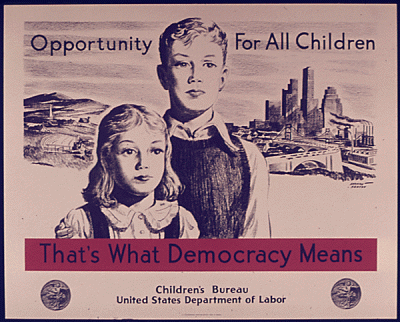
In this post we’re continuing to look at the Reggio Emilia school system and philosophy, looking closer at each cardinal principle and what possible benefits and downsides there are in context to the system contributing to a world that is best for all.
For context, please read the previous blogs in this series: Reggio Emilia: The Space of Education – The environment as the 3. Teacher: DAY 12
One of the cardinal principles in the Reggio Emilia approach is the principle of equality between adults and children, where the child is seen as co-constitutive for his or her education and where the teacher is seen as also taking part in the learning process.
As I explained in the previous blog-posts, the Reggio Emilia approach was created after World War 2 as a response to a society in ruins, socially as well as economically. Therefore the approach was meant to not only educate children but also to educate adults in general and the entire community as a whole. Furthermore, the approach had its roots in the idea that education was key to changing the future and as such the approach was established with the intent of showing children how to become independent democratic citizens – through living in a democratic system together with teachers, other children and the general community.
In recent years, in many schools across the western hemisphere democracy has become a part of the educational curriculum, so this is not something only the Reggio Emilia approach has on its agenda. Kids are to learn how to corporate effectively and ‘corporative learning’ is the new buzzword across many different school systems.
But does it work? Do children become democratic citizens based on what they learn in school? Yes and no.

First of all, in my meeting with the children at a Reggio Emilia school, I have found that these children were eloquent and had self-confidence and weren’t afraid of expressing themselves, also to adults. In several instances I’ve seen children and adults speaking with what I can only describe as mutual respect and consideration. This is very different from the interaction I’ve seen between children and adults in public schools, where the relationship is more distant and traditionally authoritarian. One of the reasons for this is most likely also that the Reggio Emilia schools are smaller than public schools, with a small faculty and student body. But still – the difference is striking. And one can only wonder who those people become that are raised and educated in either system.
So from what I have seen, presenting children to a directly democratic system by providing them rights as equals in the space of the school – is effective, none the least because of what such a school system is NOT.
However these children still has to grow up and enter a system where, let’s face it, democracy is a farce. They have to grow up and exist in a system where they even as adults have little voice or ability to make a difference.
The thing is that we can’t change the system in its entirety by simply changing the curriculum and live with children in a form of instrumental equality only to send them out into a world that is based on inequality. WE have to change first – the adults have to change first. And then the change has to be simultaneous, meaning that we both change ourselves, the education system AND the larger world-systems.
It is not enough to simply teach children to be democratic or to change the education system. Just like it is not enough to for example remove money from the equation and then imagine that people magically change. The changes required have to be total, complete and global. As much as each of us requires changing for the world to change, we also require changing the whole.
Therefore, as in the previous post, the Reggio Emilia approach to equality between teachers and students as well as to the democratic process, would be cool in an actual system of equality. In an Equal Money System we can utilize principles as taught by for example Reggio Emilia and actually make a real difference. Because when the children grow up, a society will be ready to embrace them within the same principles as they’ve been taught in school.
A flower needs sunshine to grow. But it also needs water and fertile soil to live and become its full potential. A child is no different. And that is how we ought to see education – as a collaborative process between all of us on earth, in the best interest of all.